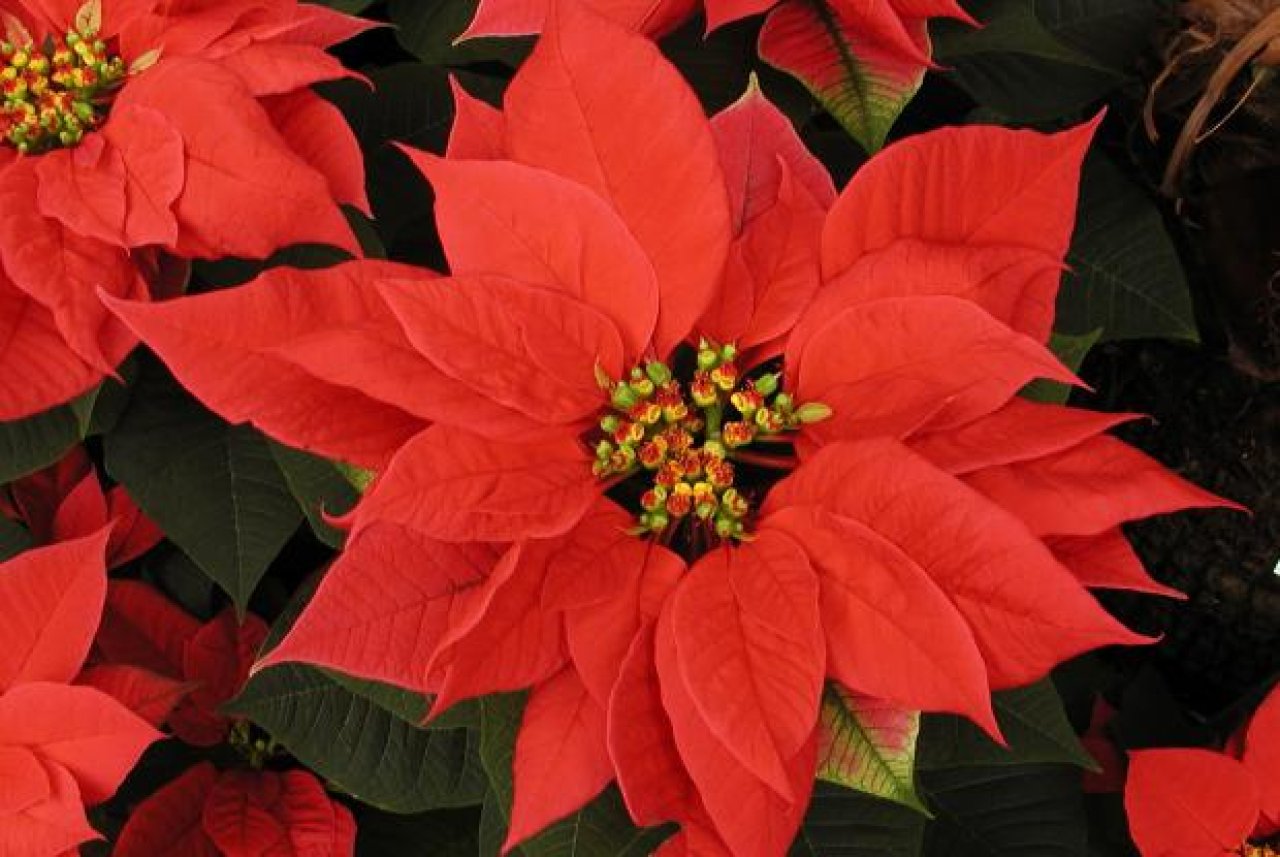
How to Keep Your Poinsettia Plant Thriving

If you have purchased poinsettias for your home or have received one as a gift, here are a few tips to keep them looking beautiful during the Christmas season and longer.
Light: Place the plant in a bright spot where one can read easily in the middle of the day. Preferably, the plant will get 2-3 hours of light per day.
Temperature: Poinsettias do best at regular room temperature between 60◦ and 72◦ F. Avoid placing them near heat sources such as fireplaces and registers.
Fertilizer: They do not require fertilizer while they are in bloom. If you wish to keep it growing after the holiday season, begin fertilizing with a houseplant fertilizer according to the directions.
Water: Poinsettias are grown in a very light soil to minimize the chance for overwatering. It is very important to keep the soil moist. Allow the surface of the soil to dry slightly, then water thoroughly. Punch holes in the bottom foil cover so that water can drain into a saucer. Be sure to drain the saucer or pot cover so the plant is not sitting in water. It is best to water the plant 2-3 times in a 5 minute period to be sure the soil absorbs the water rather than it running through. Check on the state of your poinsettia's soil daily.
If you follow these tips, your poinsettia should look wonderful for a very long time.
Poinsettia plants are not poisonous to people and pets despite popular speculation. A study conducted by The Ohio State University concluded that rats, “when given extraordinarily high doses of various portions of the poinsettias, show no mortality, no symptoms of toxicity, nor any changes in dietary intake or general behavior pattern."
'Symptoms are self-limiting and generally don’t require medical treatment, according to the Pet Poison Helpline. The site goes on to note that there are far more worrisome holiday plants, such as bouquets containing lilies, holly or mistletoe, which can cause kidney failure or other potentially fatal reactions.'

